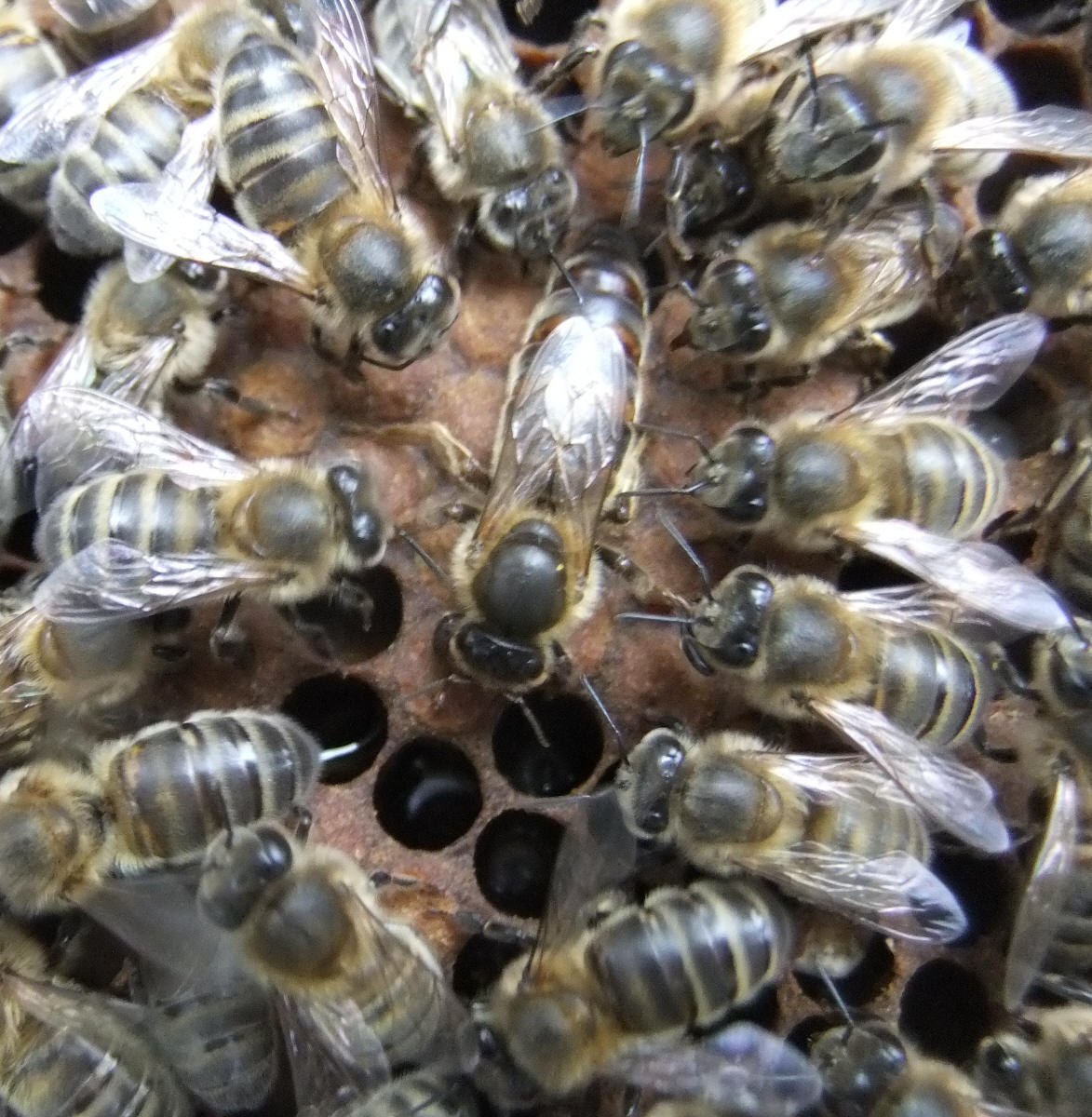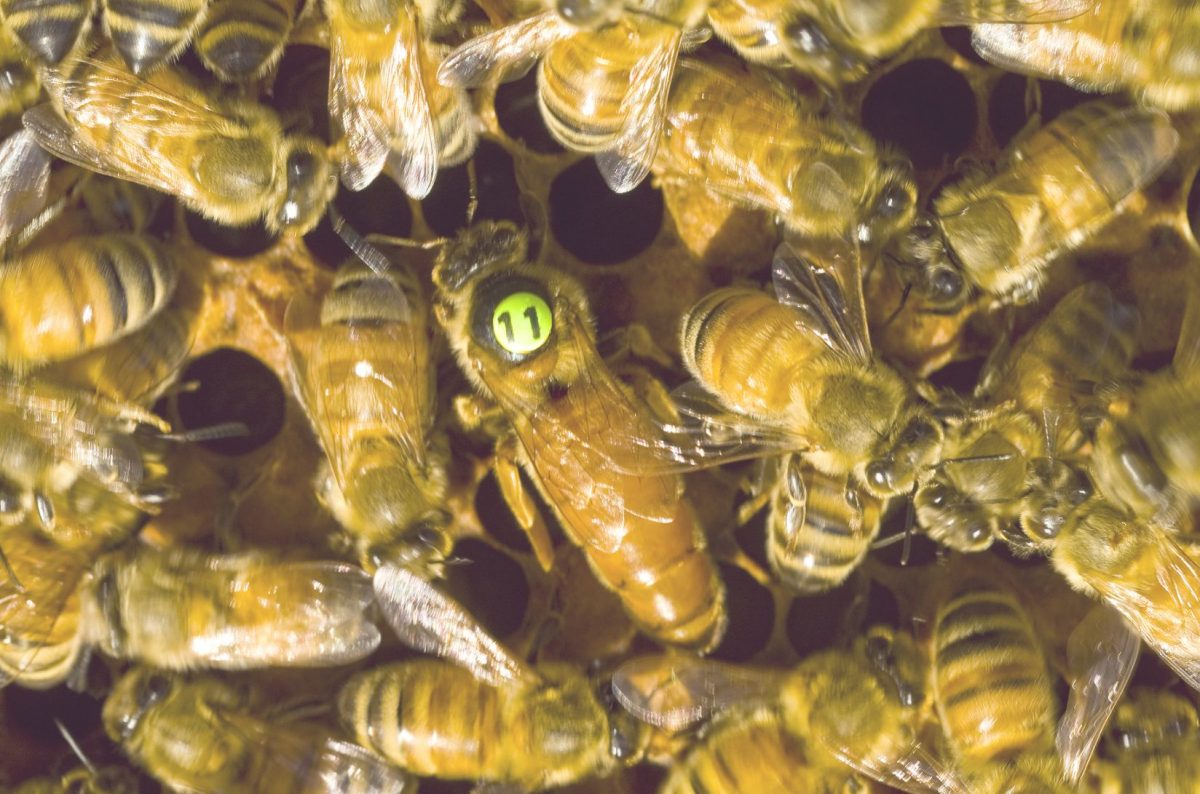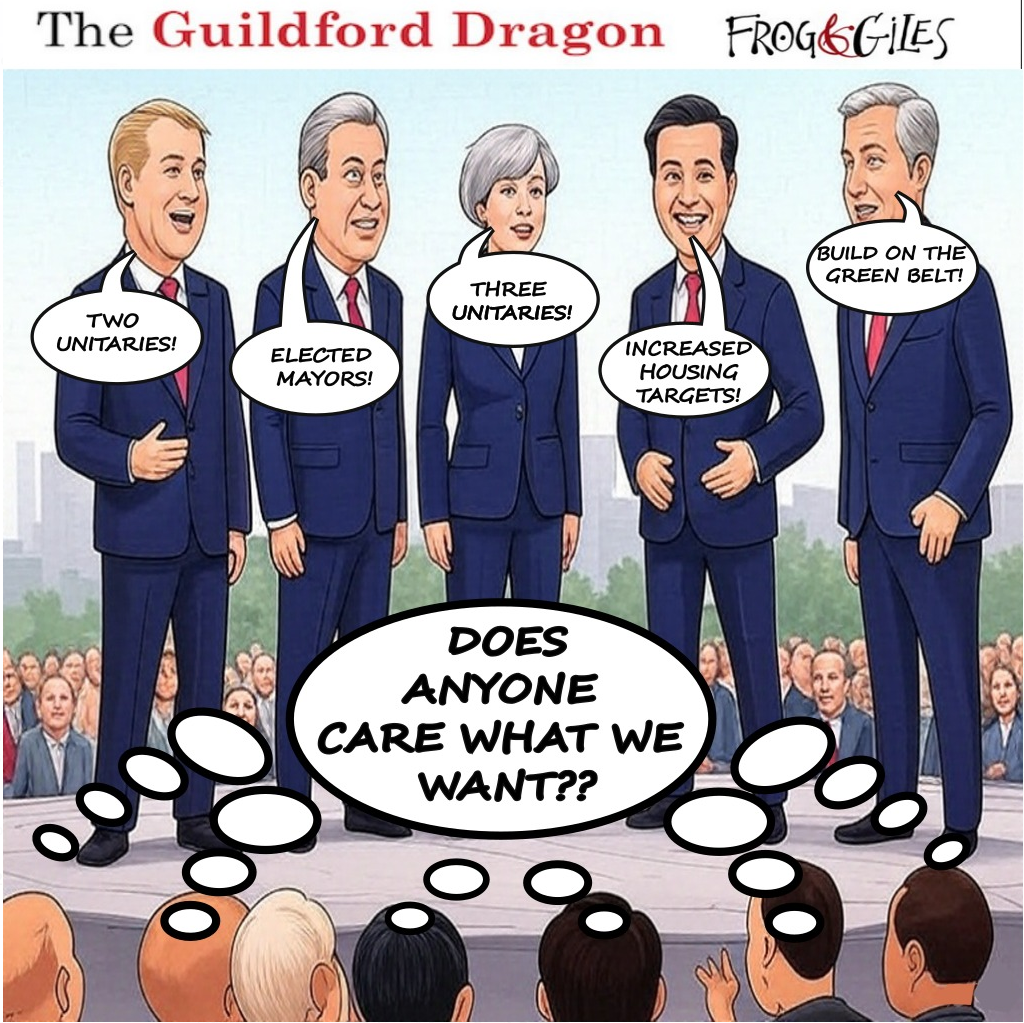- Wednesday, May 28, 2025
- Stay Connected
 Abraham Lincoln
If given the truth, the people can be depended upon to meet any national crisis...
Abraham Lincoln
If given the truth, the people can be depended upon to meet any national crisis...
 Guildford news...
for Guildford people, brought to you by Guildford reporters - Guildford's own news service
Guildford news...
for Guildford people, brought to you by Guildford reporters - Guildford's own news service
Beekeeper’s Notes October 2017: The British Black Bee
Published on: 1 Oct, 2017
Updated on: 2 Oct, 2017
Hugh Coakley keeps bees in Worplesdon. He talks about how the British native black bee may be making a comeback within these shores.

Native British queen, much darker than her Southern European counterparts and thought to be more suited to northern climates (photograph from the website by Jonathan Getty (http://www.native-queen-bees.com/).
It is interesting to see how an idea can go from a hopeless twinkle in the eye to quickly becoming a realistic possibility.
How it moves from one to the other is studied by the political classes, desperate to know when to cling onto the zeitgeist. I think that the return of the British black bee, Apis Mellifera Mellifera, could fit into this category.
The acarine mite – sometimes called the Isle of Wight disease – killed off thousands of native bee colonies in the early 1900s and left a void in the bee population in the UK. This void was filled by imported colonies often from Southern Europe.
The local bee, much blacker in appearance than its southern relative, was more or less wiped out. In fact it was thought to be extinct.
That fear is apparently is not the case. Native black bee populations have been found around the country and enthusiasts are actively breeding and encouraging the black bee to make a come-back.
My understanding of the genetic make-up of bees is limited (to say the least) but I think it is fair to say that the most common bees on our island are now hybrids.
You don’t get many of the pure black bees or indeed the Italian yellow but a hotch potch of colours. Queens mate with several drones on their mating flights. So unless the strain of drones is strictly controlled, as on an island, or the queen is artificially mated, she is unlikely to have pure bred progeny even if she is a pure breed herself.
So, is it a problem to have mongrel bees dominating the honey bee world? Probably not but there has got to be a strong case for the native bee.
The black bee is thought to be a more hardy beast, gentle, thrifty and able to prosper in the wetter and windier environs of Britain. It has its supporters around the country, including in Surrey. “The blacker, the better” said one well known local beekeeper about Apis Mellifera Mellifera.
There is a lot of publicity about bringing back the black bee. Articles in the newspapers and the recent programme on the BBC will hearten the enthusiasts and possibly inspire beekeepers around the country.
Will the native bee overtake its foreign competitor? Perhaps not but I think that I will give it a try.
















Harry Eve
October 4, 2017 at 7:46 am
Thank you, Hugh Coakley, for such a comprehensive response to my letter in the Dragon.